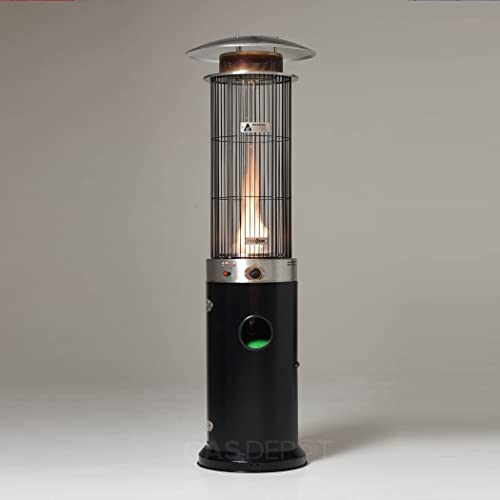Heating Equipment: 10 Things I'd Like To Have Learned Sooner
Understanding Heating Equipment: Types, Applications, and Considerations
Heating equipment plays a vital role in preserving comfortable living and workplace. Whether in property or commercial settings, efficient heating systems are essential for health, convenience, and performance. This post explores different types of heating equipment, their applications, and key factors to consider for selecting the right heating system for particular needs.
Types of Heating Equipment
Heating equipment can be broadly categorized into different categories based on fuel type, heating method, and application. Below are the most common types:
Type of Heating Equipment
Description
Typical Applications
Heaters
A combustion heater that warms air and distributes it via ducts.
Residential homes, commercial structures.
Boilers
Heats up water to produce steam or hot water for heating space or offering warm water.
Radiant heat, commercial procedures.
Heat Pumps
Transfers heat from the air, ground, or water, utilizing electrical energy to assist in heating & cooling.
Residential homes, zoning systems.
Radiant Heaters
Warms things directly without heating the air in between, often through electrical coils or warm water.
Homes, health clubs, workshops.
Space Heaters
Portable heaters that provide direct heat to a small area.
Residences, garages, workshops.
Water Heaters
Heats up water for domestic uses, can be tankless or storage types.
Residential bathrooms, cooking areas.
1. Furnaces
Furnaces are one of the most typical heater, especially in chillier climates. They can be powered by various fuels, consisting of natural gas, propane, oil, or electricity. This equipment runs by heating air and dispersing it through ductwork.
Advantages of Furnaces:
- Efficient heating across big spaces.
- Can be integrated with air conditioning systems for year-round environment control.
2. Boilers
Boilers are substantial for heating water and producing steam for central heater. Unlike furnaces, which heat air, boilers distribute hot water or steam through pipelines to radiators or underfloor heating unit.
Benefits of Boilers:
- Provide even heat circulation and preserve humidity levels.
- Can use renewable energy sources, such as wood pellets or solar energy.
3. Heat Pumps
Heat pumps, frequently thought about flexible, can effectively heat and cool spaces. These systems work by extracting heat from outside sources (even in cold weather) and moving it inside.
Advantages of Heat Pumps:
- Energy efficient and can result in lower utility costs.
- Ecologically friendly as they utilize eco-friendly energy.
4. Radiant Heaters
Radiant heating systems are designed to heat objects directly without warming the surrounding air. This method is typically more efficient, as it decreases heat loss.
Advantages of Radiant Heaters:
- Offer focused heating for targeted locations.
- Boost convenience by preserving more consistent temperature levels.
5. Space Heaters
Space heaters are portable units that offer extra heat in localized locations. They can be electrical, propane-fed, or kerosene-based.
Benefits of Space Heaters:
- Cost-effective for heating small spaces.
- Versatility to move as required for convenience.
6. Hot water heater
Water heaters are essential for providing warm water for domestic use, including bathing, cooking, and cleansing. They are available in different types, consisting of tankless, solar, and standard tank-style heaters.
Advantages of Water Heaters:
- Essential for daily hygiene and family convenience.
- Energy-efficient options offered.
Key Considerations When Choosing Heating Equipment
Picking the best heating equipment is crucial for performance and convenience. Here are some key considerations to bear in mind:
- Energy Source: Assess the schedule and expense of various fuel sources in your area. Natural gas tends to be more efficient, while electrical systems might use convenience.
- Size Requirements: Select a system sized appropriately for your space. Undersized systems may have a hard time to heat sufficiently, while oversized models can lead to inefficient heating and greater energy bills.
- Energy Efficiency: Look for equipment with high energy effectiveness ratings. Devices with ENERGY STAR labels can help with expense savings and ecological preservation.
- Setup and Maintenance Costs: Consider both upfront purchase expenses and long-lasting maintenance costs. Some systems might have greater initial costs but lower operational expenditures.
- Environmental Impact: Evaluate options that lessen carbon emissions and lower overall environmental footprints, such as solar hot water heater or heat pumps.
Frequently Asked Questions (FAQs)
What is the most efficient kind of heating equipment?
The performance can differ, however heatpump are generally thought about highly efficient, particularly in milder climates. They can supply substantial energy savings compared to conventional heating techniques.
How often should heating equipment be serviced?
Generally, it is recommended to service heater at least when a year. Routine maintenance guarantees efficient operation, longevity, and safety.
How can I enhance the performance of my heating system?
- Regularly modification or clean filters.
- Seal leakages in ducts and windows.
- Use programmable thermostats to manage temperature levels effectively.
Are there eco-friendly heating options readily available?
Yes, options such as solar hot water heater, biomass boilers, and geothermal heatpump provide eco-friendly heating solutions that utilize sustainable resources.
What size heating system do I require for my home?
The size will depend upon different factors, including the home's square footage, insulation quality, and regional climate. Related Web Page can carry out a load estimation to figure out proper sizing.
Heating equipment is a crucial element of building comfort and efficiency. With various options readily available, comprehending the types and their applications is essential for making informed decisions. By considering energy sources, equipment sizing, effectiveness, and ecological effects, house owners and companies can ensure their heating unit fulfill their needs effectively.
In conclusion, the best heating option often involves stabilizing preliminary costs, operational performance, and environmental considerations— making sure a warm and comfy living environment for years to come.
